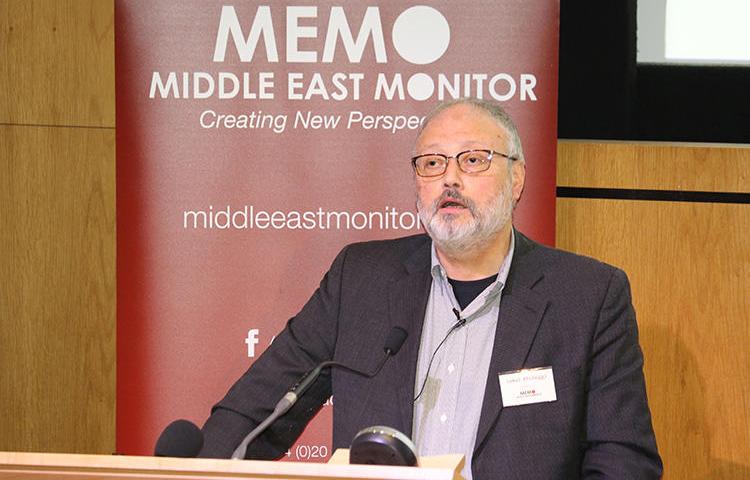
More journalists killed on the job as reprisal murders nearly double
Journalists from Saudi Arabia to Afghanistan to the U.S. were targeted for murder in 2018 in reprisal for their work, bringing the total of journalists killed on duty to its highest in three years. The number of journalists killed in conflict fell to its lowest level since 2011. A CPJ special report by Elana Beiser
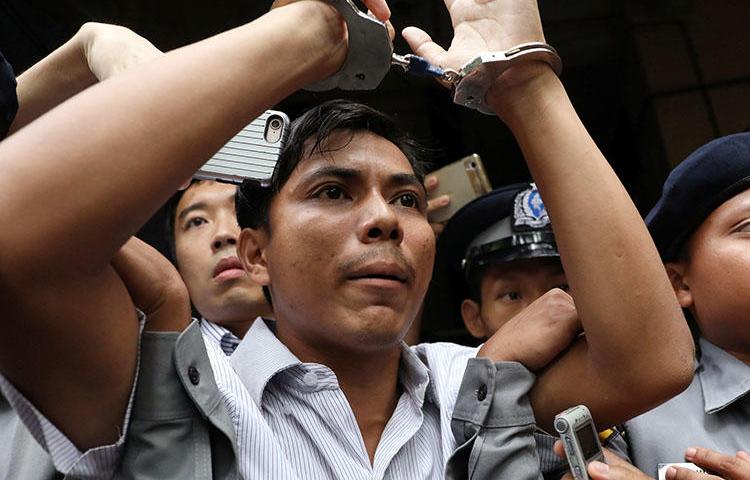
Hundreds of journalists jailed globally becomes the new normal
For the third year in a row, 251 or more journalists are jailed around the world, suggesting the authoritarian approach to critical news coverage is more than a temporary spike. China, Egypt, and Saudi Arabia imprisoned more journalists than last year, and Turkey remained the world’s worst jailer. A CPJ special report by Elana Beiser
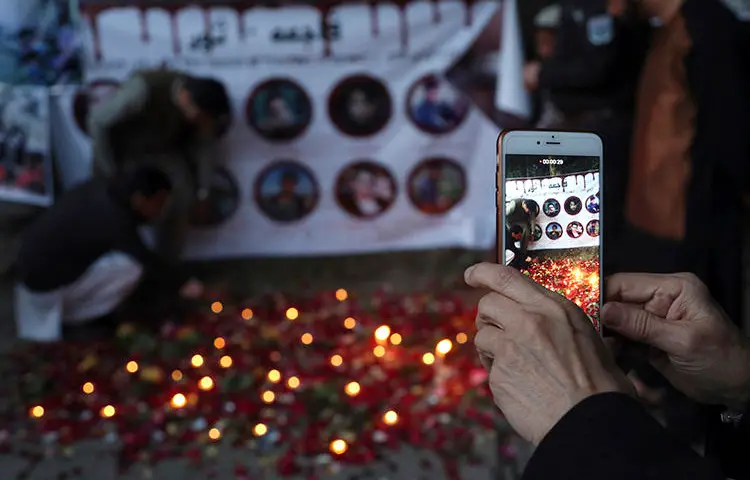
Getting Away with Murder
CPJ’s 2018 Global Impunity Index spotlights countries where journalists are slain and their killers go free By Elisabeth Witchel, CPJ Impunity Campaign Consultant Impunity is entrenched in 14 nations, according to CPJ’s 2018 Global Impunity Index, which ranks states with the worst records of prosecuting the killers of journalists.
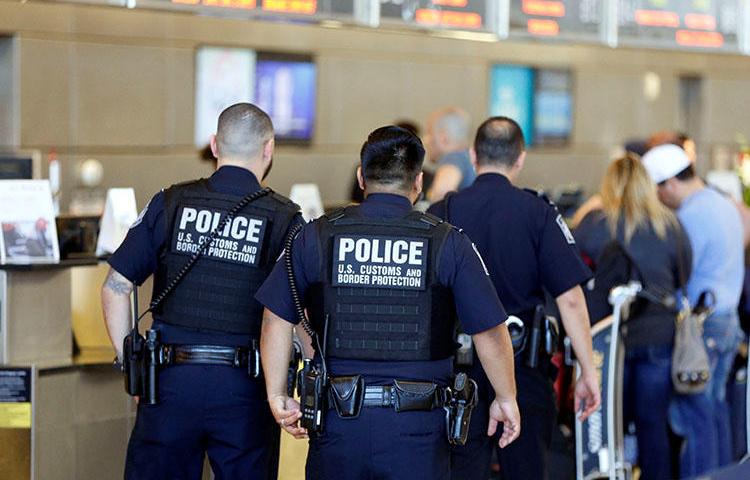
Nothing to declare: Why U.S. border agency’s vast stop and search powers undermine press freedom
Secondary screenings of journalists crossing U.S. borders risk undermining press freedom as Custom and Border Protection agents search devices such as laptops or phones without warrant and question journalists about their reporting and contacts. As the government ramps up searches of electronic devices, rights groups mount legal challenges to fight invasive searches. A special report…

Nothing to declare:
About This ReportThis report was written by CPJ North America Program Coordinator Alexandra Ellerbeck and CPJ North America Research Assistant Stephanie Sugars, with additional research and reporting by North America Research Associate Avi Asher-Schapiro. CPJ Advocacy Director Courtney C. Radsch wrote the accompanying piece, “CPJ’s slog to improve DHS and CBP policy toward journalists.” Reporters…

Nothing to declare:
CPJ’s slog to improve DHS and CBP policy toward journalists One of the key principles of journalism is protecting the confidentiality of sources. So when CPJ started hearing from journalists who said they were being stopped and questioned about their journalism when they entered the United States, and that their electronic devices were sometimes searched…
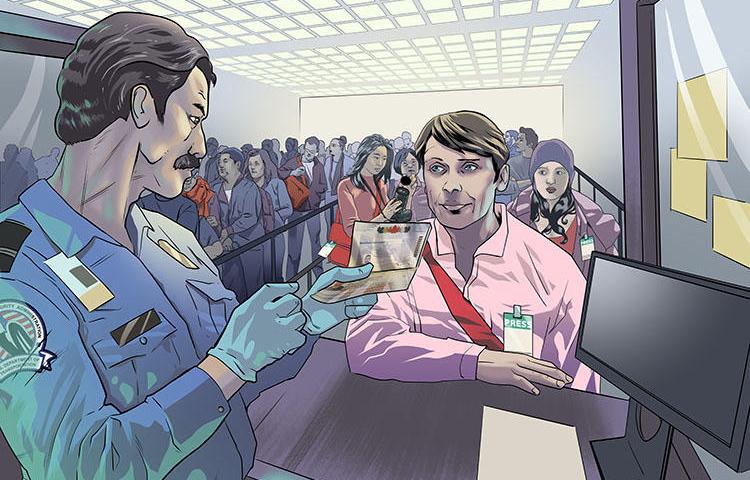
Nothing to Declare: CPJ’s advice for journalists crossing a U.S. border
The U.S. Customs and Border Protection agency (CBP) has authority to search electronic devices without warrant or probable cause. Civil liberties groups are challenging this power in court, but journalists should be aware that current practice risks exposing contacts, sourcing, and reporting material contained on laptops, phones, and other devices.
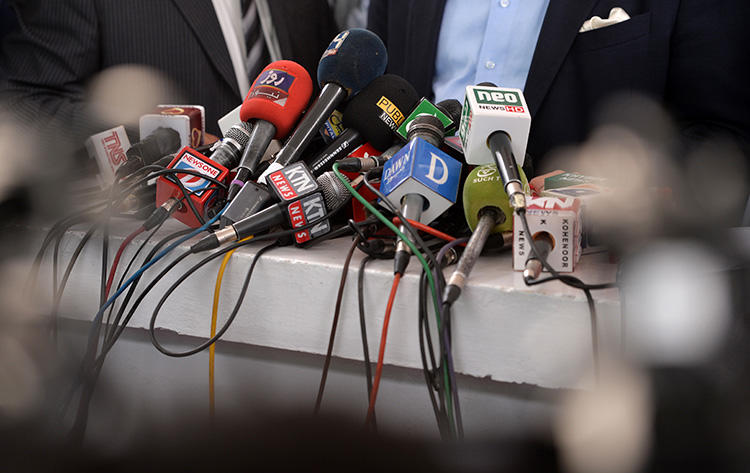
Acts of Intimidation: In Pakistan, journalists’ fear and censorship grow even as fatal violence declines
As killings of journalists in Pakistan decline so too does press freedom, as the country’s powerful military quietly, but effectively, restricts reporting by barring access, encouraging self-censorship through direct and indirect acts of intimidation, and even allegedly instigating violence against reporters. Journalists who push back or are overly critical of authorities are attacked, threatened, or…

Acts of Intimidation:
About This Report This report was written by CPJ Asia Program Coordinator Steven Butler. CPJ’s multimedia producer Mustafa Hameed contributed research and reporting, and produced the accompanying documentary “Acts of Intimidation.” CPJ traveled to Karachi, Islamabad, Peshawar, Lahore, and Okara in February 2018, to meet with journalists, editors, and media groups.